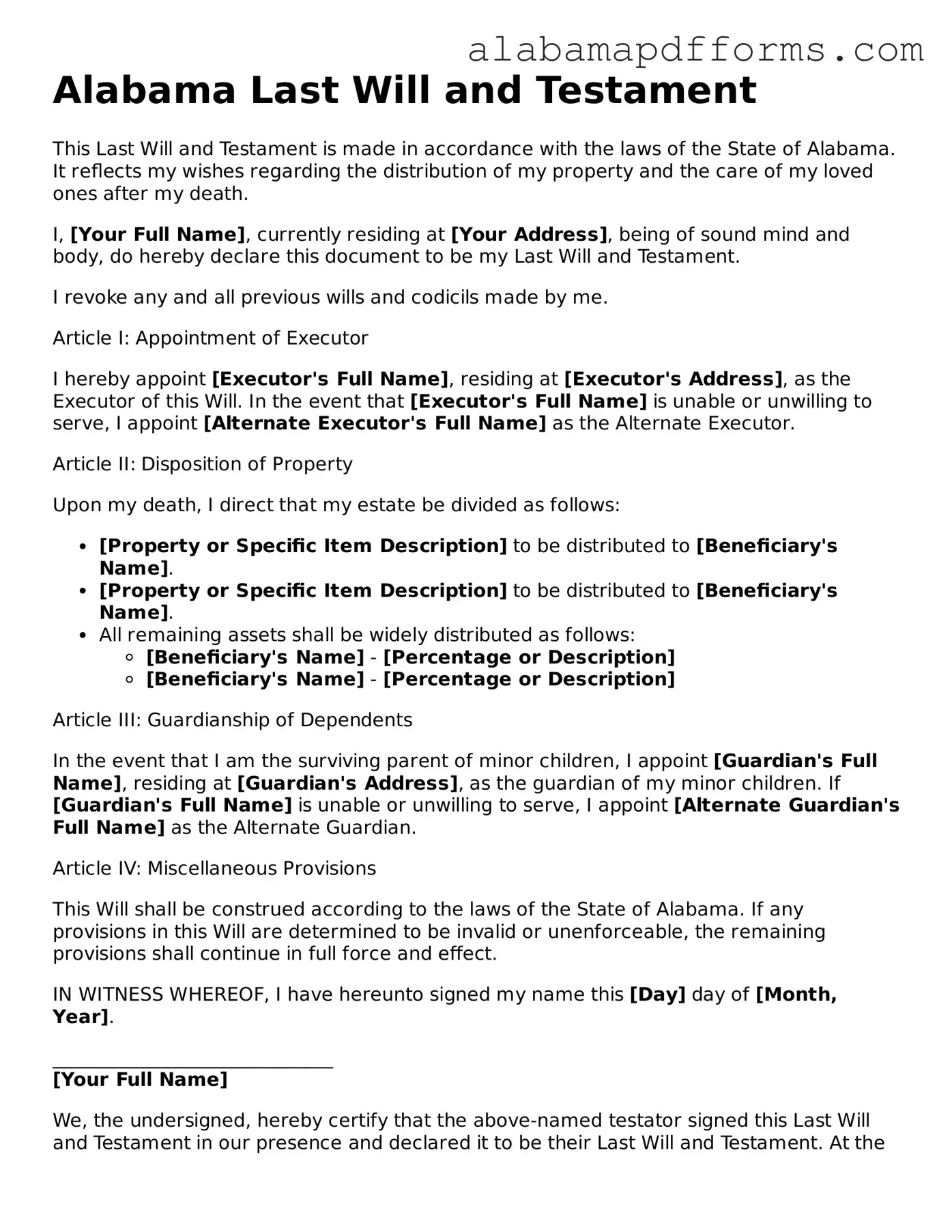Legal Last Will and Testament Document for the State of Alabama
A Last Will and Testament is a legal document that outlines how a person's assets and affairs should be handled after their death. In Alabama, this form allows individuals to specify their wishes regarding the distribution of their property, appoint guardians for minor children, and designate an executor to manage the estate. Understanding the importance of this document can provide peace of mind and ensure that your intentions are honored.
Fill Out Your Document Online

Legal Last Will and Testament Document for the State of Alabama
Fill Out Your Document Online

Fill Out Your Document Online
or
➤ Last Will and Testament PDF Form
Your form is halfway done
Complete and edit Last Will and Testament online in minutes, hassle-free.